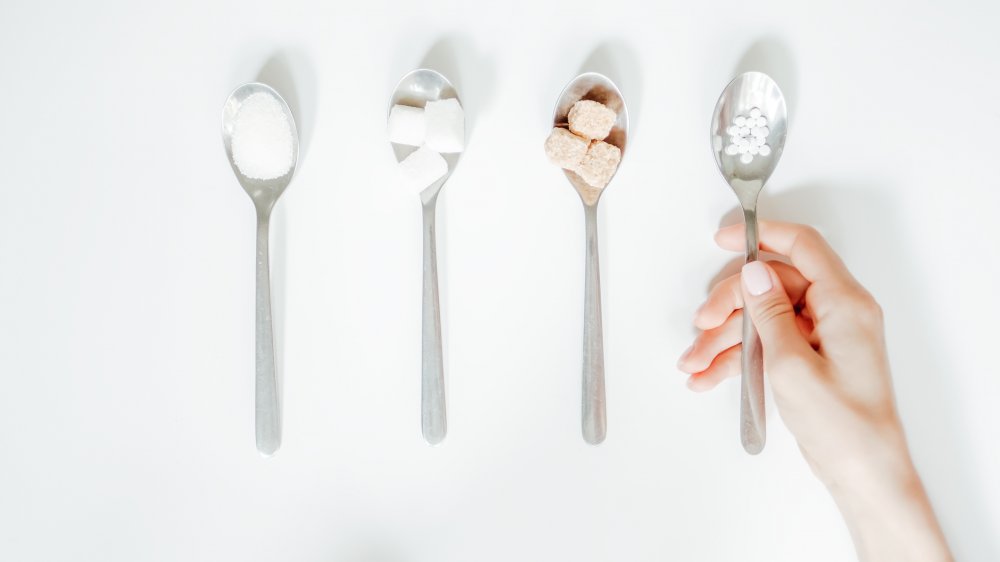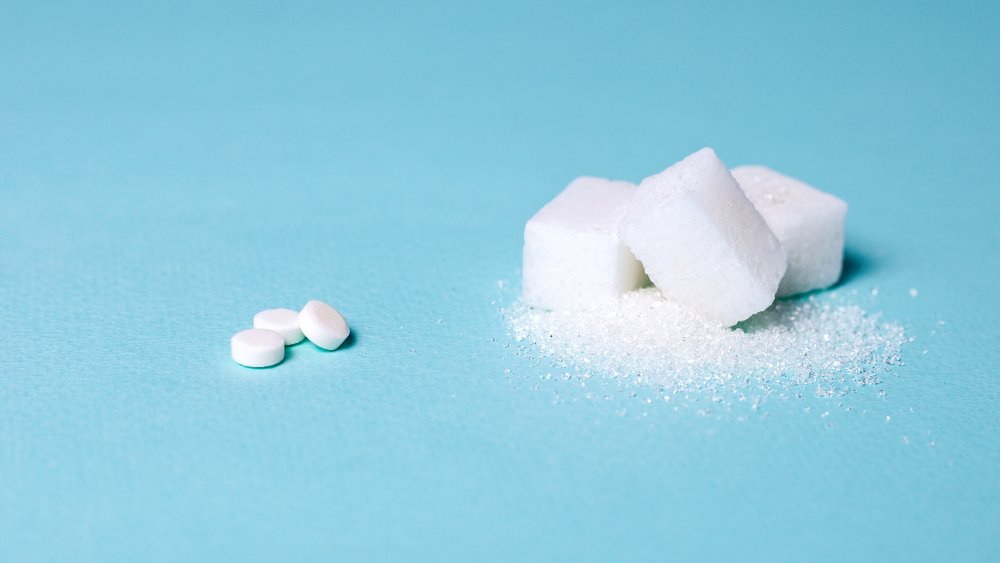Artificial Sweeteners Can Have A Surprising Effect On Your Taste Buds
By now, it is common knowledge that consuming too much sugar is not healthy. Sugar is a major contributor to many health problems, including obesity, heart disease, type two diabetes, and even certain types of cancer, according to Healthline. Artificial sweeteners, like sucralose, saccharin, aspartame, and neotame, are FDA-approved sugar alternatives that provide sweet flavoring with far fewer calories.
While a famous 1970s study conducted on lab rats initially seemed to indicate a link between the artificial sweetener saccharin and bladder cancer, numerous recent studies have shown this is not the case. According to the Mayo Clinic, there is no scientific evidence that proves using any type of artificial sweetener increases the risk of serious health issues. However, artificial sweeteners may not always be the healthiest option either.
Although there is no proven link between artificial sweeteners and cancer, these sweet substitutes still may have an unexpected health consequences. The high concentration of sweet flavoring that is contained in even a small quantity of artificial sweetener may alter the way people taste certain foods if they consume artificial sweeteners regularly.
Artificial sweeteners can change the taste of certain foods
How does this work? The synthetic sweetness from artificial sweeteners can overstimulate the body's taste buds, which makes the sweetness found in natural sources like fruits seem less potent. It can also make the subtle taste of vegetables seem flavorless and unappetizing.
Dr. David Ludwig of Boston Children's Hospital explains that "non-nutritive sweeteners are far more potent than table sugar and high-fructose corn syrup. A minuscule amount produces a sweet taste comparable to that of sugar, without comparable calories. Overstimulation of sugar receptors from frequent use of these hyper-intense sweeteners may limit tolerance for more complex tastes," (via Harvard Health Publishing).
The intensity of the artificial sweetness may lessen the appeal of natural sweetness found in healthier foods like fruits and vegetables, which in turn can steer people towards making less nutritious diet choices. The healthiest option is to try to consume both sugar and artificial sweeteners in moderation, and focus on eating a diet with plenty of natural foods like vegetables, fruits, and whole grains.

